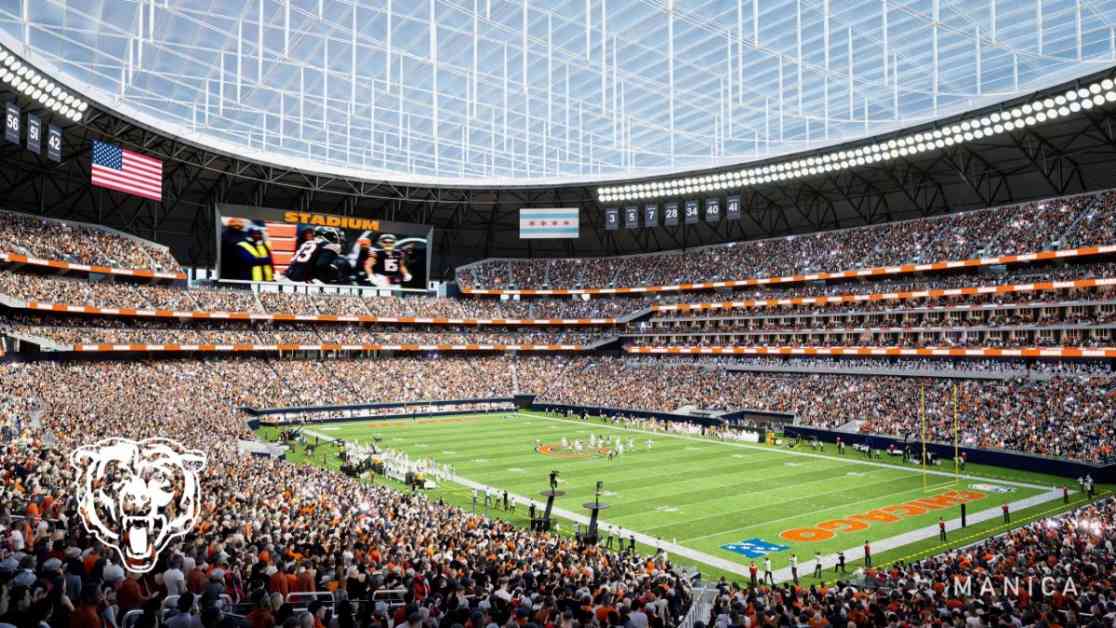The Chicago Bears are charging full steam ahead with their plans to construct a brand-new stadium in downtown Chicago, with the team President and CEO, Kevin Warren, leading the charge. In a recent postseason press conference, Warren outlined the team’s bold vision for the upcoming year, emphasizing their unwavering commitment to building a state-of-the-art stadium near the picturesque shores of Lake Michigan.
Ambitious Plans Unveiled
Warren revealed that the Bears are zeroing in on the Museum Campus area as the prime location for their new stadium, underscoring the significant progress they have made in turning this dream into a reality. With a firm eye on the future, Warren set a clear goal of breaking ground on the project within the calendar year, setting the stage for a groundbreaking moment in 2025.
Hurdles on the Horizon
While the Bears had previously acquired 326 acres of land in Arlington Heights for a potential stadium site, Warren stressed that their current focus remains on a downtown Chicago location. Despite the allure of Arlington Heights, the team is dedicated to their original plan of constructing a cutting-edge stadium in the heart of the city, adjacent to their current home at Soldier Field.
Political and Community Obstacles
However, the road to realizing this ambitious vision is fraught with challenges. The team’s proposal, which carries a hefty price tag of nearly $5 billion, hinges on securing approval from both the city of Chicago and the state of Illinois. Political support for the project remains uncertain, with Governor J.B. Pritzker and other key figures adopting a cautious stance.
Moreover, community groups like Friends of the Parks have raised concerns about the environmental impact of the stadium on the pristine lakeshore and the potential financial burden it could impose on the city. The debate over the usage of public funds for the project has stirred a mix of opinions, with advocates for green spaces and fiscal responsibility voicing their dissent.
In the face of these challenges, the Chicago Bears are forging ahead with their bold vision, determined to redefine the city’s sports landscape with a cutting-edge stadium that promises to be a beacon of innovation and community pride.
Now, think about the importance of preserving green spaces and the impact of large-scale projects on the local environment. How do you believe the benefits of a new stadium should be balanced against these concerns?





















